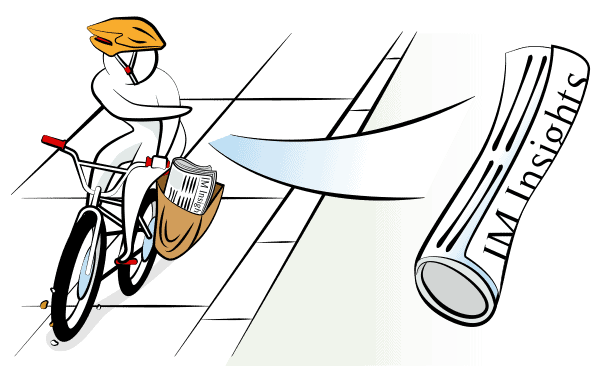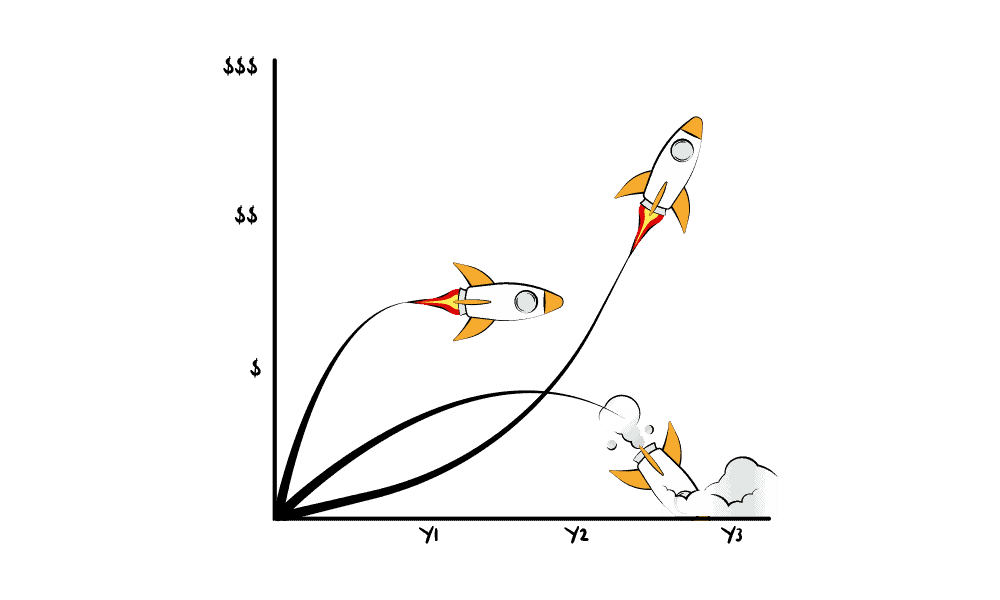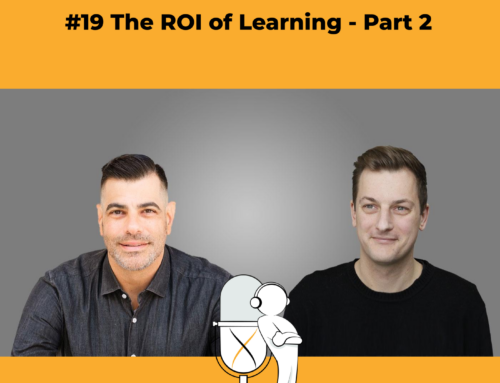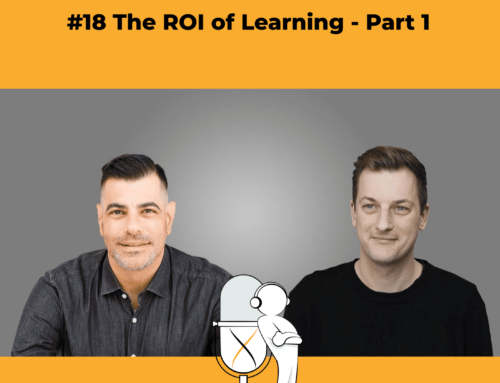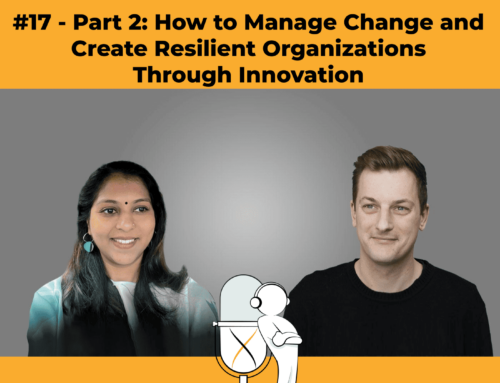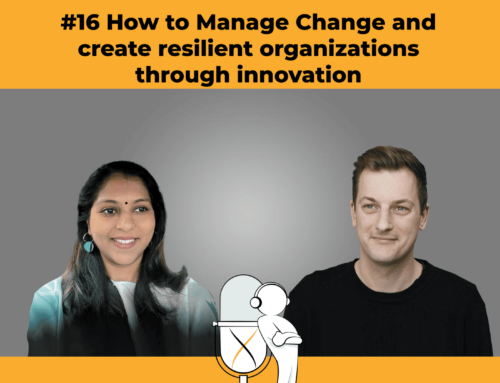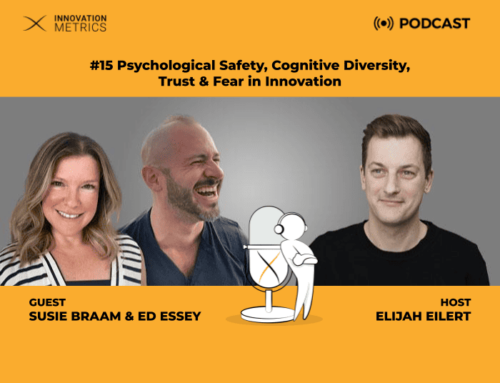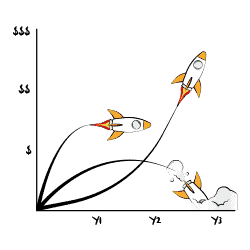Innovation Accounting – Ranges are Key
About the Episode
Elijah Eilert speaks to Tristan Kromer about the pitfalls of early-stage predictions in startups and corporate innovation initiatives, and how to drastically improve them.
“It’s ok to ask innovators how a business is going to make money and how much. The problem is the way we traditionally expect them to produce the answer. The way we frame it can’t be answered effectively”
An emerging concept, enabling effective Innovation accounting, is to express variables as a range of likelihood not as single numbers. Subsequently, the outcome of the financial or mission impact model can be expressed as a range of likelihood rather than a wildly optimistic estimation of a single number. This enables innovators to quantify the uncertainty of each variable and the entire project. The innovation team’s job is to gather new insights and reduce uncertainty. Innovation accounting enables them to feed this back into the model by changing the estimated ranges and quantify what they have learned. By narrowing down the ranges based on a new insight teams gain the ability to demonstrate progress in a quantifiable way even before a product is launched.
Topics and Insights
- (03:15) Nobody in innovation is happy with the way predictions are made.
- (07:00) Business cases tend not to be terrible when there is enough historical data available.
- (10:15) Human behaviour usually causes the most uncertainty.
- (12:00) There are legitimate reasons not to invest in innovation.
- (16:00) Asking if and how a startup will eventually make money is a fair question but the way the question is usually framed can’t be answered effectively.
- (18:00) Even businesses with a 10 year trading history have mostly terrible business cases. Warren Buffet who is known to only invest in companies with a long track record does not listen to forecasters when allocating resources. (“There is no business so lousy it can’t get a wonderful projection” – Charlie Munger.)
- (20:30) Typical business cases don’t inform about uncertainty effectively.
- (21:30) Asking for best case, worst case estimation and dividing them by two is hardly an improvement. The solution to understanding uncertainty better is to allow for ranges.
- (24:30) Allowing for ranges is great for any type of project, not just innovation.
- (25:40) Expressing things in ranges has many benefits, amongst them, that it makes predictions more honest and more accurate. It also increases the sense of psychological safety and is simply easier.
- (28:00) If innovation accounting can assist in solving the problem of biases and favouring talented storytellers in securing funding.
- (29:30) Methods to battle certain biases during resource allocation.
- (31:15) On the usefulness of templates for auditioning.
- (33:00) Innovation accounting can measure and demonstrate progress by narrowing down the ranges.
- (36:40) In a state of extreme uncertainty, a little bit of information is telling us a lot.
- (37:40) Monte Carlo Simulations can be applied to the ranges thus making the predictions more accurate.
- (39:00) The art of entrepreneurship is the art of reducing uncertainty by getting information.
- (39:40) Fermi Decomposition demonstrates how complex problems, when broken down into simple steps, are easier to measure. From estimating the height of the Empire State Building to the output of a business model.
- (44:00) How this topic relates to the question of how to measure innovation teams, as discussed in a previous episode (Insight Velocity, Experimentation Velocity and quantifying the value of the information).
- (46:00) Discovered a new innovation team and culture measure in ‘Percentage of Teams Asking for Help’.
- (46:30) Bridge the communication gap between innovation and finance, where both parties have to make one step towards each other
- (47:30) On metered funding and paying for information not for a product/ROI)
- (51:00) Innovation accounting should be about expressing uncertainty in a quantitative way and reducing the range of uncertainty as the project proceeds.
- (51:30) Innovation is a game of information and needs a portfolio perspective. The one with more information will increase the odds of success over time.
- (54:30) The innovation game, Plinkromatic, demonstrates the math behind funding innovation.
- (55:00) Elijah tried to be funny, guess the outcome.
- (55:30) Ranges are awesome
Show Transcript
About the Guest
As the founder of Kromatic, Tristan works with innovation teams and leaders to create amazing products and build innovation ecosystems.
Tristan has worked with more than 30 technology accelerator programs, including government-funded initiatives such as Innovation Norway, Vinnova (Sweden), Enterprise Ireland, NEST’up (Belgium), StartSmart (Estonia), and the Innovation Partnership Program (Vietnam-Finland). He has designed lean startup programs such as the Build or Die Bootcamp for TechBA (Mexico) and the Boom Reactor (Belgium) in addition to being part of Luxr, whose Core Curriculum has been used by 13 accelerators internationally, including Singularity University, 500 Startups, & The United States Innovation Fellows.
He has worked with companies ranging from early stage startups with zero revenue to established businesses with >$10M USD revenue (Kiva, Cancer Research U.K., TES) to enterprise companies with >$50B USD revenue (Unilever, Swisscom, Salesforce, Fujitsu, LinkedIn).
Tristan regularly speaks, appears on panels, and gives workshops internationally with organizations such as the Stanford Center for Entrepreneurial Studies & D-school, Global Product Management Talks, Lean Startup Machine, General Electric (GE), and more.
With his remaining hours, Tristan volunteers his time with early stage startups.
Originally from New York City, he has lived in Germany, Switzerland, Taiwan, and Vietnam, and currently resides in San Francisco, USA.
Connect with Tristan
Sign up for the latest on Innovation Accounting, Lean Startup, Workshops and Innovation Ecosystem Design.
RELATED INNOVATION WORKSHOPS & TRAINING
